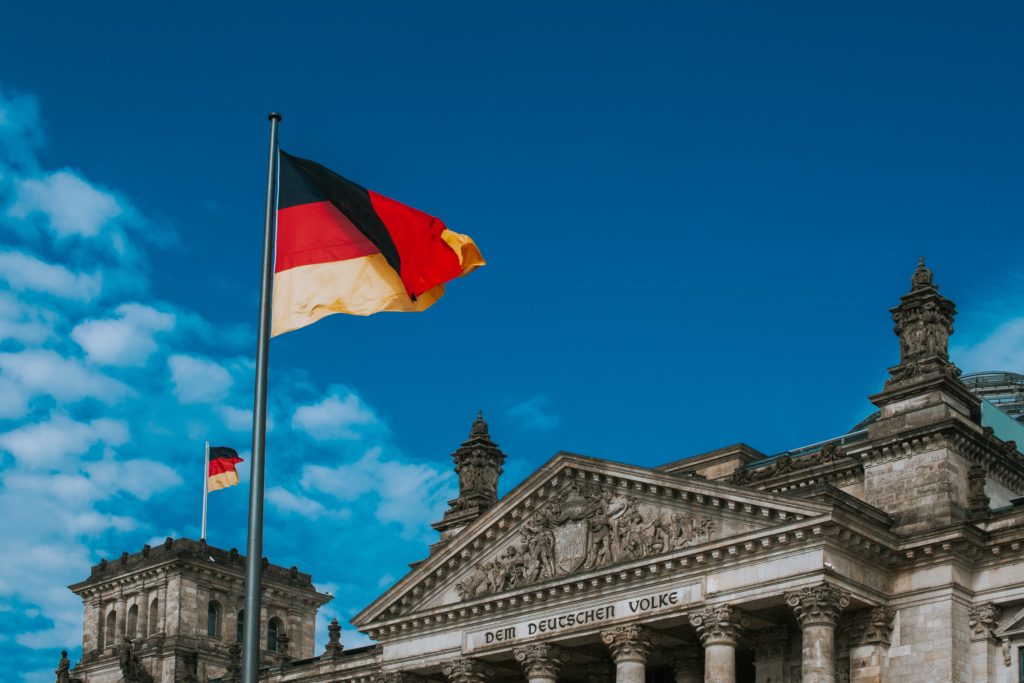
The work visa in Germany is a document that is issued in several stages. First, in the country of citizenship, the applicant applies for a national visa type D and already in Germany receives a residence permit.
Types and features of German work visas
In 2020, changes to German legislation come into force aimed at attracting labor from non-EU countries. Now a diploma from a technical school or college is enough. The only requirement is knowledge of the German language. The main feature of the innovation is the abolition of checking for the fact of the unemployment rate in a particular profession. In total, there are several types of German work visas:
EU Blue Card
A Blue card allows you to work in all EU countries. Requirements – graduation from the university, the presence of an employment contract with the employing company, and the lower salary threshold from 39,600 € (for IT specialists, mathematicians, and representatives of the engineering field) and 50,800 € for other applicants. If a blue card is issued by another country, it is accepted, but it undergoes additional verification.
Permanent residence for valuable personnel
The condition applies to scientists known for their work, researchers, professors.
Permit for highly qualified specialists
Obtaining such a work visa to Germany is possible with the appropriate skills and a salary of 86,400 € annually.
General employment
The most demanded type of German work permit. There are no strict requirements for education and specialty. For employment, the profession must be in demand at the time of the request. To apply for a visa, you need to confirm your qualifications and have an employment contract on hand.
Job seek visa
Job seek visa as an option, you can apply for a work visa to Germany for future employment. If approved, a person can stay in the country for six months, after which it is necessary to re-register or obtain a residence permit.
Specific types of visas
There is also a more detailed classification of German work visas by categories – for a doctor, housekeepers, and nannies, artists, for an internship, for doing business, etc.
How to get a work permit in Germany?

A work permit in Germany is issued for a specific place of work. This means that the applicant first submits documents, including an employment contract, to an embassy or consulate in their home country. Then the diplomatic department sends a request to Germany, where a work permit is issued.
Usually, the decision is taken by the Labor Agency (Bundesagentur für Arbeit), sometimes this document is issued by the Office for Foreigners (Ausländeramt). In case of a positive answer, the applicant receives a national visa with a work permit in Germany. In Germany, with such a visa, you need to contact the Office for Foreigners to obtain a residence permit (Aufenthaltserlaubnis).
Documents for a work visa to Germany
In addition to the standard list of documents for a work visa to Germany, you will need:
Employer agreement or invitation
The presence of the following information is required – the name, contacts of the employer, address, salary, time of employment, type of work, etc.
Proof of knowledge of the German language
This is not necessary, but if it is available, the likelihood of obtaining a work visa to Germany increases.
Confirmation of qualifications
Confirmation of the qualification level, an indication of training places, positions held with dates. Accepted diplomas and certificates recognized in the Federal Republic of Germany. All documents must be translated, certified, and apostilled. To ensure that the diploma is accepted in Germany, you can refer to the ANABIN database. If the document does not have H ++ status or the Entspicht mark is missing, it is required to send a petition to the ZAB for recognition of the paper.
How to apply for a work visa to Germany?
Step 1: Finding a place for employment
The basis for a trip to the country is a labor agreement signed by the parties. If it is not possible to personally come for the document, it is sent by courier or mail.
Step 2: Getting permission
The employing company performs a set of works to check the possibility of employment in a particular profession. The list is constantly being revised.
Step 3: Recording for an interview and collecting documents
These issues are handled by the Consulate or the Embassy of Germany. You can sign up by calling the organization in your city.
Why can a German work visa be refused?

When obtaining permission to enter Germany for employment, foreigners often face refusals from the authorities. The reasons are the same as for a national type D visa:
- Lack of documentation. In the absence of any certificate, it must be conveyed at the first request.
- Fake detection. In such a situation, a person may be included in the “blacklist”, after which it will be almost impossible to travel abroad.
- The absence of any data in the questionnaire, controversial points, or errors. In this case, you have to re-feed the papers.
- Violations of stay in the country in the past, for example, deviation from the terms of stay in Germany or another Schengen country.
The reason for the refusal to issue a work visa for employment in Germany may be suspicions from the employees of the Consulate, insufficient funds, a threat to national security, etc.
After receiving a notice of refusal from the person, the person has the right to appeal the decision using an appeal. It is necessary to indicate the case number, contacts of the applicant, and explanations for each of the “problem” points. The appeal must be accompanied by supporting documents.



